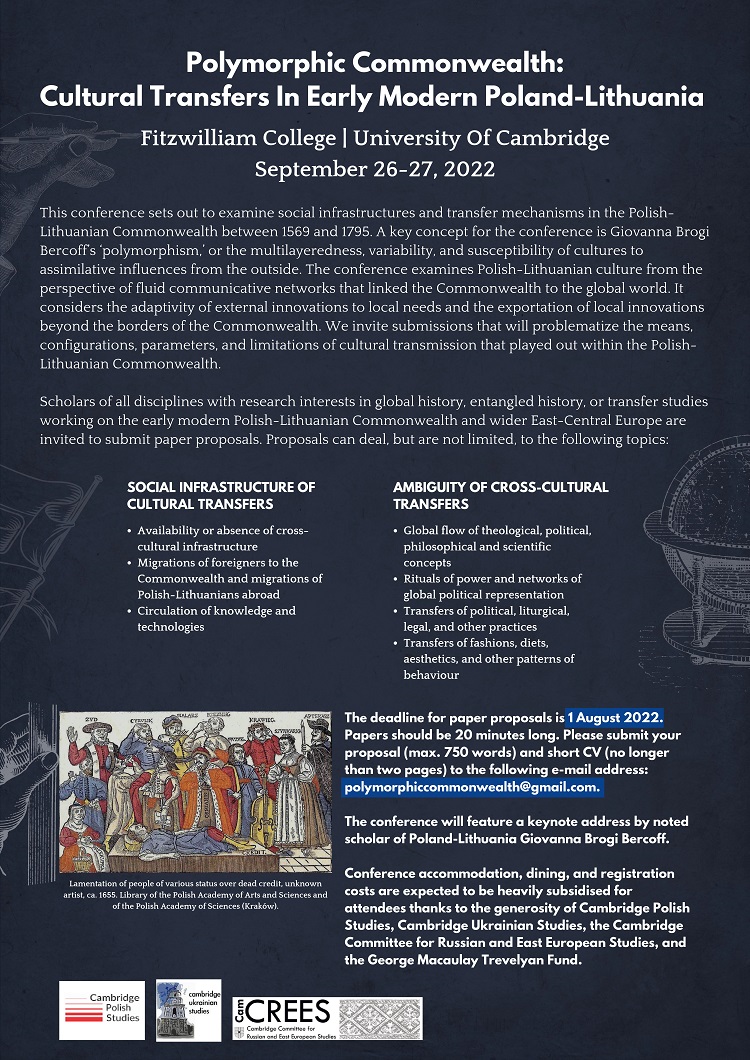
In the introduction to the influential collection of articles The Transmission of Culture in Early Modern Europe (1990), Anthony Grafton posited that ‘transmission will never replace creation in the historian’s romantic heart.’ However, the rapid rise of post-colonial and global history has put this tenet in question. The concept of transmission has recently been applied by many contemporary historians to consider the fluidity of early modern culture. Sanjay Subrahmanyam’s Connected Histories: Notes Towards a Reconfiguration of Early Modern Eurasia (1997) made apparent the global dimension of early modern cultural interconnections. Recently, Zoltán Biedermann, while reflecting on Subrahmanyam’s work, embraced the concept of ‘connected histories’ but also reminded us that global disconnections exist and need to be discussed. According to Biedermann, the major task of current global historians is to investigate how the early modern world was connected and how it was disconnected and why.
With this in mind, the proposed conference sets out to examine social infrastructures and transfer mechanisms in the Polish-Lithuanian Commonwealth between 1569 and 1795. A key concept for the conference is Giovanna Brogi Bercoff’s ‘polymorphism,’ or the multilayeredness, variability, and susceptibility of cultures to assimilative influences from the outside. The conference examines Polish-Lithuanian culture from the perspective of fluid communicative networks that linked the Commonwealth to the global world. It considers the adaptivity of external innovations to local needs and the exportation of local innovations beyond the borders of the Commonwealth. We invite submissions that will problematize the means, configurations, parameters, and limitations of cultural transmission that played out within the Polish-Lithuanian Commonwealth.
Scholars of all disciplines with research interests in global history, entangled history, or transfer studies working on the early modern Polish-Lithuanian Commonwealth and wider East-Central Europe are invited to submit paper proposals. Proposals can deal, but are not limited, to the following topics:
SOCIAL
I. SOCIAL INFRASTRUCTURE OF CULTURAL TRANSFERS
SOCIAL INFRASTRUCTURE
Availability or absence of cross-cultural infrastructure: roads and communicative nodes within global mercantile, political, religious and intellectual networks;
(Supra)local industries of mediation and translation.
AGENCY OF HUMAN EXPERIENCE
Migrations of foreigners to the Commonwealth and migrations of Polish-Lithuanians abroad (e.g., educational Grand Tours, flights from persecution, and the search for opportunities);
Experiences of Polish-Lithuanians in the service of global organizations (e.g., Dutch and British East and West India Companies; the Society of Jesus).
CIRCULATION OF KNOWLEDGE AND TECHNOLOGIES
Book exchange, rumours, gossips, espionage, conspiracies as means of cultural transfers.
II. AMBIGUITY OF CROSS-CULTURAL TRANSFERS TERMINOLOGY
Global flow of theological, political, philosophical and scientific concepts.
RITUALS
Rituals of power and networks of global political representation (e.g., diplomatic and court ceremonies, carnivals and processions, coronations, and dethronements).
PRACTICES
Transfers of political practices;
Transfers of liturgical practices (e.g., Armeno-Catholic, Catholic, Calvinist, Greek Catholic, Jewish, Lutheran, Orthodox, Unitarian);
Transfers of legal practices (e.g., scrutinium);
Transfers of medical and occult practices.
TECHNOLOGIES
Transfers of agricultural and urban technologies;
Technologies of fine and religious art production;
Transfers of learning and knowledge;
Transfers of military and engineering technologies.
PATTERNS OF BEHAVIOUR
Transfers of fashion and diet;
Aesthetics of masculinity/femininity or political/ ecclesiastical authority.
Papers should be 20 minutes long. Please submit your proposal (max. 750 words) and short CV (no longer than two pages) to Stepan Blinder (Fitzwilliam College, University of Cambridge) and Stanislaw Banach (Selwyn College, University of Cambridge) using the e-mail address: polymorphiccommonwealth@gmail.com. The application deadline is 1 August 2022. Applicants will be notified about the results of the selection process by 15 August 2022.
The conference will feature a keynote address by noted scholar of Poland-Lithuania Giovanna Brogi Bercoff.
This conference is planned as an in-person event. Conference accommodation, dining, and registration costs are expected to be heavily subsidised for attendees thanks to the generosity of Cambridge Polish Studies, Cambridge Ukrainian Studies, the Cambridge Committee for Russian and East European Studies, and the George Macaulay Trevelyan Fund.
Potential participants must have an internationally recognized certificate confirming acceptance of the full course of COVID-19 vaccination (two doses + booster). In the event of new COVID restrictions, the conference will take place in a virtual format.

